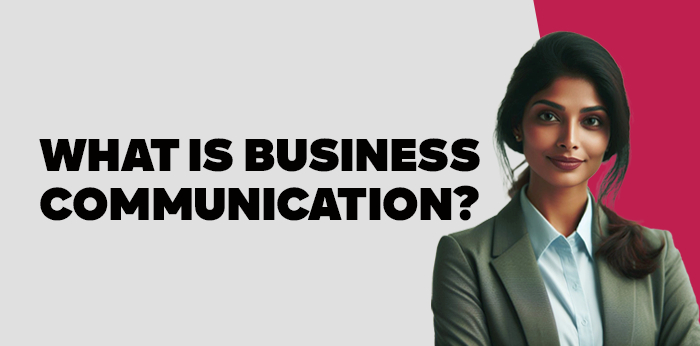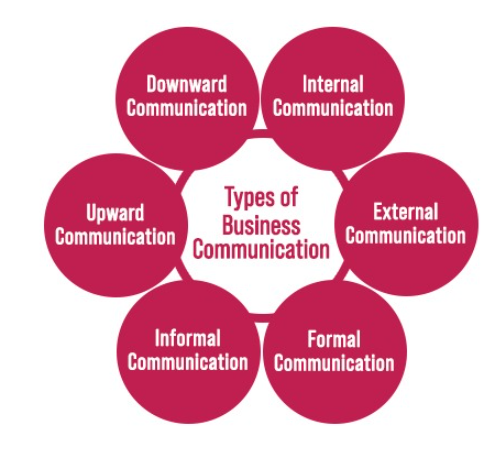
Business communication refers to the exchange of information within an organisation or between different entities to facilitate business activities and achieve common goals. This write-up gives you valuable insights on communication in a broader sense, giving more emphasis on business communication.
Communication is the process of exchanging information, thoughts, and feelings between individuals or groups. It involves the exchange of ideas and emotions. This multifaceted concept is the lifeblood of human interaction that plays a central role in personal, professional, and societal contexts.
Technically communication involves the transmission of messages from a sender to a receiver. This transmission is not limited to words,various modes such as verbal language, non-verbal cues, written symbols, and even visual or auditory signals are also decoded in form of information. The process involves encoding, transmitting through a chosen channel, decoding, and, ideally, eliciting feedback to ensure the intended message is received and understood with clarity.
Within the vast landscape of communication, business communication stands out as a specialised domain tailored to the needs of the corporate world. It encompasses the exchange of information within an organisation and between organisations, stakeholders, and clients. Business communication is characterised by its formality, professionalism, and the specific objectives it aims to achieve in the context of c

Communication that occurs within an organisation among its members such as employee memos, team meetings, internal newsletters.This sort of communication fosters coordination, teamwork, and the dissemination of information within the organisation.
This is communication between an organisation and external entities, including clients, customers, suppliers, and the public.For example Customer emails, press releases, marketing materials.The major significance is that this mode of communication shapes the organisation’s public image, builds customer relationships, and facilitates business transactions.
This form of communication is well Structured, official communication often follows established channels and protocols, Official reports, company policies, legal documents are all examples.Formal communication ensures clarity, consistency that caters to the needs of an organisation.
Unofficial, casual communication that occurs spontaneously among employees is often termed as informal form of communication.Some examples would include Watercooler conversations, social interactions.
Communication from lower levels of an organisation to higher levels such as maintaining a hierarchy such as employee feedback, performance reports.
Enables employees to share insights, concerns, and ideas with the top management.
Communication from higher levels of an organisation to lower levels.
Examples are Company announcements, policy updates which is significant
enough to disseminate information, expectations, and guidance from management to employees.
Effective business communication frames the backbone of any successful organisation. It’s not only conveying information but also building relationships, fostering collaboration, and driving positive outcomes.
Here are the core objectives of business communication:
Clarity and Concision: The messages are delivered clearly, concisely, and accurately, ensuring that everyone understands the intended meaning.
Engagement and Interaction: Active listening, open dialogue, and two-way communication to build trust and rapport.
Collaboration and Teamwork: This facilitates teamwork and collaboration by sharing ideas, knowledge, and feedback effectively.
Decision-Making and Problem-Solving: Communicate effectively to gather information, analyse situations in order to make firm decisions
Building Relationships: In order to establish strong relationships with colleagues, clients, and stakeholders through open and honest communication.
By mastering all these objectives one can achieve greater efficiency, productivity, and overall success.
1)How can I improve my written communication skills for business?
Focus on clarity, conciseness, and proper grammar. Proofread your messages, use professional language, and tailor your communication to the targeted audience.
2)How can businesses use technology for effective communication?
Businesses can leverage various technologies such as email, video conferencing, project management tools, and collaboration platforms to streamline communication and enhance efficiency.
3)How can I provide constructive feedback in a business setting?
Constructive feedback should be specific, timely, and focused on behaviours rather than personalities. Use a positive tone, highlight strengths, and suggest improvements for professional growth.
4)What is the importance of active listening in business communication?
Active listening fosters better understanding, builds trust, and minimises misunderstandings in the workplace.
5)How can businesses handle communication challenges and conflicts?
Addressing conflicts requires open communication to establish clear communication protocols and encourage a culture of transparency to resolve conflicts and prevent them.
In the trajectory of human existence, communication is important in every facet of our lives. The understanding of the diverse types of communication navigate us through the intricate web with more effective interactions in both personal and professional arenas. In the business world, where precision, clarity, and professionalism are paramount, business communication stands as a testament to the adaptability and specificity of communication as a whole.
You May Like